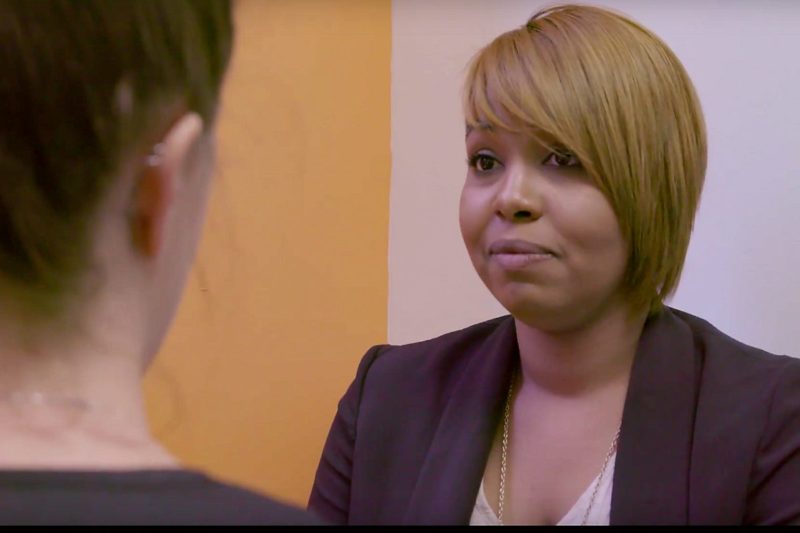West Virginia Families, Just Learning About Health-Care Access, Fear It Will Be Taken Away
Some patients in rural West Virginia have only recently been introduced to the realm of health care available thanks to the Affordable Care Act. “To have it stripped away is a tragedy,” said one local doctor.

In Vienna, West Virginia—just north of Parkersburg, along the Ohio River separating the two states—the only Planned Parenthood health center in the state sits among a scattering of gray and tan buildings beside the main road. A few days a week, women and men, older residents, families, and children, filter in and out of its doors, seeking medical care. This is where, in an office between a few patches of grass and long lengths of concrete, infections are treated, birth control is obtained, and cancer is discovered. This is where patients have returned for years, to be heard and to be cared for.
Rural women who have received care from Planned Parenthood of West Virginia went to the nation’s capital Thursday to voice their concerns about the bill now under consideration in the Senate, known as the Better Care Reconciliation Act, and to share personal stories of driving in from other cities—and sometimes across state lines—to be treated by Planned Parenthood staff and physicians.
Peshka Calloway was among the group of women, who ranged in age from mid-20s to 60. Calloway, a Parkersburg, West Virginia resident, wanted the senators to understand the wide array of health concerns faced by individuals, and the variety of specific services on which they depend that are now under threat as a result of the Senate bill. “I wanted them to see that the needs of West Virginians are diverse,” Calloway explained.
It is well known that Planned Parenthood offers contraception, testing for sexually transmitted diseases, and pregnancy services, as well as abortion services and referrals, but West Virginians also receive hormone therapy, and testing and treatment for HIV, while others take their entire families to the clinics for general health care. Planned Parenthood centers—like the one Calloway visits in Vienna—offer extensive health services to their communities, especially to those with lower incomes. And, as Calloway noted, some patients are even seeking help at Planned Parenthood in battling opioids—a long-term and yet rising concern for Central Appalachia.
“We all made the choice to go to Planned Parenthood for different reasons,” said Calloway, who wanted to give Senators more than a story, but a face. “Putting politics aside, we rely on Planned Parenthood,” she said.
A revision of the bill that is intended to repeal the Affordable Health Care Act was announced Thursday. Changes have been made to cultivate support from Republican senators such as Sens. Shelley Moore Capito of West Virginia and Rob Portman of Ohio, including $45 billion to help specifically with the opioid crisis. Nonetheless, the bill would still dramatically cut funding for Medicaid and essentially defund Planned Parenthood for one year.
For Calloway, a U.S. veteran and a single mother who is also a working professional in her community, the care she receives from Planned Parenthood is about more than annual exams and birth control. “Planned Parenthood has done more for me than any military or primary care doctor,” she said.
Calloway, who has a family history of breast cancer, said her initial reason for seeking care at Planned Parenthood began after Veterans Affairs did not effectively address a lump she found in her breast. Since then, Planned Parenthood has become her primary provider because she finds with them a hospitable and accepting environment to investigate her health concerns.
Dr. Jessica McColley, a doctor of osteopathic medicine who runs a health clinic in West Virginia, also traveled to Capitol Hill Thursday. “The truth of it is this: It affects our working families who have recently been introduced [by the Affordable Care Act] to the realm of health care,” she said, “They’re just learning about it, and to have it stripped away is a tragedy.”
McColley, a maternal-child health physician, believes Planned Parenthood is integral to the lower-income families she serves. But her concern over this bill extends beyond her professional practice and worry for her patients. She also thinks of the future, and of her own family. She has two children who have pre-existing conditions. As a physician and as a mother, she can’t help but think about how these changes in health care will inevitably affect them.
The future of the small town clinic in Vienna, West Virginia, and its many patients, depends on senators in D.C. For Calloway and McColley, and the other women who shared their stories Thursday, their hope is to be heard.
“We’re affecting regular people and telling them they don’t count. Telling them their health doesn’t matter,” McColley said, “Give more care, more help. Not less.”
